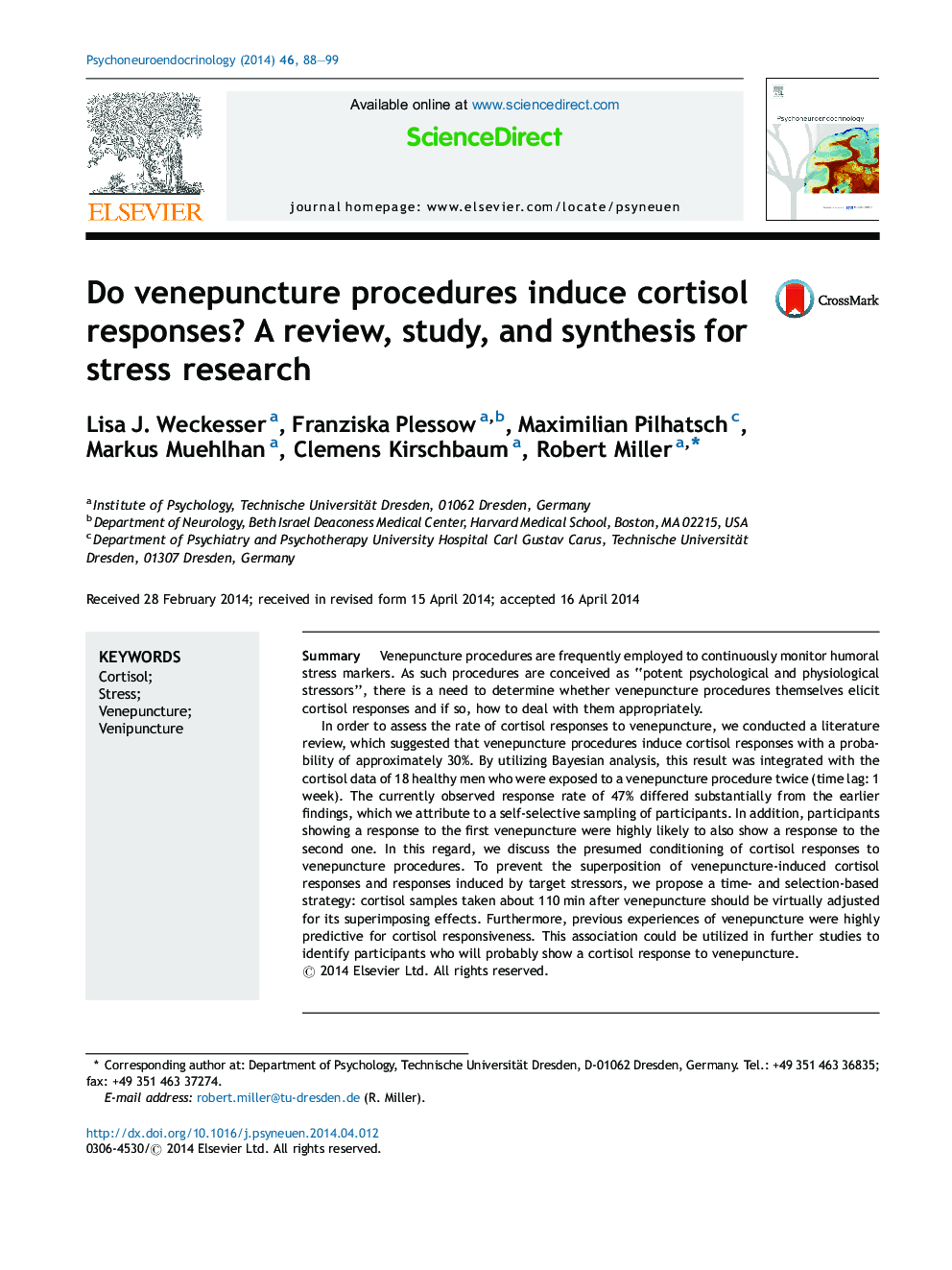| Article ID | Journal | Published Year | Pages | File Type |
|---|---|---|---|---|
| 6819768 | Psychoneuroendocrinology | 2014 | 12 Pages |
Abstract
In order to assess the rate of cortisol responses to venepuncture, we conducted a literature review, which suggested that venepuncture procedures induce cortisol responses with a probability of approximately 30%. By utilizing Bayesian analysis, this result was integrated with the cortisol data of 18 healthy men who were exposed to a venepuncture procedure twice (time lag: 1 week). The currently observed response rate of 47% differed substantially from the earlier findings, which we attribute to a self-selective sampling of participants. In addition, participants showing a response to the first venepuncture were highly likely to also show a response to the second one. In this regard, we discuss the presumed conditioning of cortisol responses to venepuncture procedures. To prevent the superposition of venepuncture-induced cortisol responses and responses induced by target stressors, we propose a time- and selection-based strategy: cortisol samples taken about 110Â min after venepuncture should be virtually adjusted for its superimposing effects. Furthermore, previous experiences of venepuncture were highly predictive for cortisol responsiveness. This association could be utilized in further studies to identify participants who will probably show a cortisol response to venepuncture.
Related Topics
Life Sciences
Biochemistry, Genetics and Molecular Biology
Endocrinology
Authors
Lisa J. Weckesser, Franziska Plessow, Maximilian Pilhatsch, Markus Muehlhan, Clemens Kirschbaum, Robert Miller,
